How To Transfer Plugins From One Blog To Another
If you have created a blog with Blogger and decided to transfer Blogger to WordPress you will need to know if there is a way to transfer content. In this article, Migrate Blogger to WordPress: the complete guide, we'll see how to transfer your site from Blogger to WordPress so you can keep the content you've already created and import Blogger to WordPress directly. We will also see how to verify that you have transferred the content correctly. In the end, I'll explain how to make sure the migration doesn't negatively affect your search engine rankings. But before we get started, let's see why you should switch from Blogger to WordPress. If you're getting ready to start a blog, the first question you'll have to answer is "Which platform do I use?" There are two most widely used blogging platforms: Blogger and WordPress. In recent times, many people are deciding to transfer from Blogger to WordPress. This can happen for various reasons and primarily the choice to migrate from one platform to another depends precisely on the differences between the two. With Blogger you have the advantage of using a free platform and you don't need hosting. On the other hand, if you choose to create a site with WordPress you will need hosting, but in this case, you will have total control over your site. So which is better? Blogger or WordPress better? There is no simple answer because it all depends on your needs. In both cases, you will be dealing with a platform that is simple to use. But with WordPress, you will have more extensive features available that Blogger can't offer. If you want to create a blog, one of your goals will be to position yourself on search engines to gain visibility. Therefore, you'll have to evaluate your choice from an SEO point of view.. On WordPress, you will have several plugins for on-page SEO that offer suggestions on how to align your texts. Blogger has no plugins to support you if you want to optimize your SEO. After this brief introduction let's see what the site import Blogger to WordPress is all about. As you'll see, some of the steps of transferring your site are similar to those you'd have to do if you wanted to move from WordPress.com to WordPress.org or in transfering from Wix to WordPress. When you switch from one system to another what we actually do is move your content from one platform to another. The first step will be to install WordPress, a task you can easily skip, if you choose one of our WordPress hosts. Our client's site on Blogger looked like this: The first thing I recommended to her was to look for the same theme on WordPress, which in her case did not exist. She then chose a different theme and we installed it on WordPress. Now we have a WordPress installation with a theme we like, let's get into the nitty gritty of this article: Migrate Blogger to WordPress: the complete guide. The site was already on a domain, it was not on a free subdomain. To work on the WordPress site, we modified the file hosts from the moment the domain was pointing to blogger throughout the migration. This simplified operations to some extent, because we didn't have to create a redirect 301 for the domain change, but we had to check that the page urls were the same before and after to avoid problems. The first step is to create an export file with all the content on Blogger. Log in to the admin interface and click on the settings on the left. Remember the number of posts, in this case is 718. This number is important because later we're going to check to see if all content has been migrated onto WordPress. Then click on "Back up content". Then click on "Download" to download the backup of your content. Now that we have the Blogger backup file we can import content from Blogger to WordPress. WordPress provides us with a Blogger to WordPress import plugin that we can install in a jiffy. Log in to the WordPress admin area and click on "Tools -> Import", then on Install Now in the link related to the Blogger plugin. Once WordPress is done downloading and installing the plugin you'll see a link to start the import. Click on the link to start the import. Then click on the button to choose the export file we created earlier from the Blogger admin panel and click on the "Chose File" button. If all goes well, you're done. In the case of this import, we had some issues, and the only way to fix it was to use an alternate method for migration. From reading on the internet you realise that it's quite common that the default import plugin gives problems. In order to complete this migration, we had to install a third-party plugin: Blogger importer extended. This plugin is much more robust for importing content from Blogger to WordPress and allows us to import 20 posts for free or all posts for a small payment. Let's install the plugin and go to "Settings -> Blogger importer". Let's then click on "Run importer" to get started. Since in our case we had 718 posts we bought a key for import. At this point the importer would ask us for the id of our blog, in the same screen, it gives us a link with instructions on how to get this id. At this point, it presents us with some options and we can start the transfer our content from Blogger to WordPress. Note that the plugin is not able to migrate draft articles and scheduled articles. Let's wait for the plugin to do its job. Wait until the migration is complete. Regardless of the method we used, it's a good idea to check that the import was completed correctly. First, we need to go to the articles section and check that the number matches. If you remember, we had 718 articles on Blogger, and here we only see 710. Where did the missing articles go? The plugin we used warned us before we started the import that drafts and scheduled articles would not be migrated. We found 8 drafts on Blogger, so it's all good. It's a good idea to check the media, and check to see if the images from our posts have been imported correctly into WordPress. When transferring a website we must always make sure that Google can find the new site and the new pages. Since it's far from easy to be on the first page of Google, we have to make sure that we make life easy for Google. In our case the blog was already on an internet domain, so we just had to make sure that the urls were the same. In this way, Google will notice that the code of the pages is different (due to the change of platform and theme), but will continue to find the same pages at the same addresses, so there is no problem. If instead your blog was on a subdomain like name.blogspot.com and now it's on name.com we have to make Google understand that we moved the site with a 301 redirect. A bit like when we change the location of our business and leave the address of the new location on the door of the old store or office. In this case to create the 301 redirect we need to use JavaScript. Edit your blogger theme and before the </head> tag paste this code after changing the domain names on line 6: In this way, anyone visiting your old site on Blogger, including Google, will be sent to your new WordPress site with a 301 redirect. In this article: Migrate blogger to WordPress: the complete guide, we have seen how to transfer Blogger to WordPress. If you follow all the steps, you should be able to transfer all the content without any problems. What about you, why did you decide to switch from Blogger to WordPress? Were you satisfied with your choice? Let me know in the comments below. Why migrate from Blogger to WordPress
How does transfer from Blogger to WordPress work?

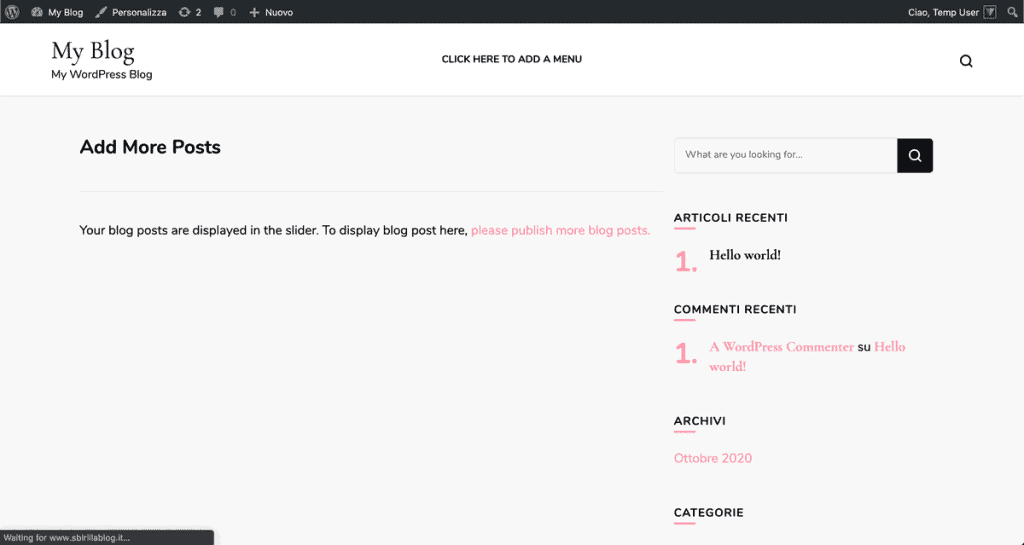
More about the transfer
Exporting content from Blogger
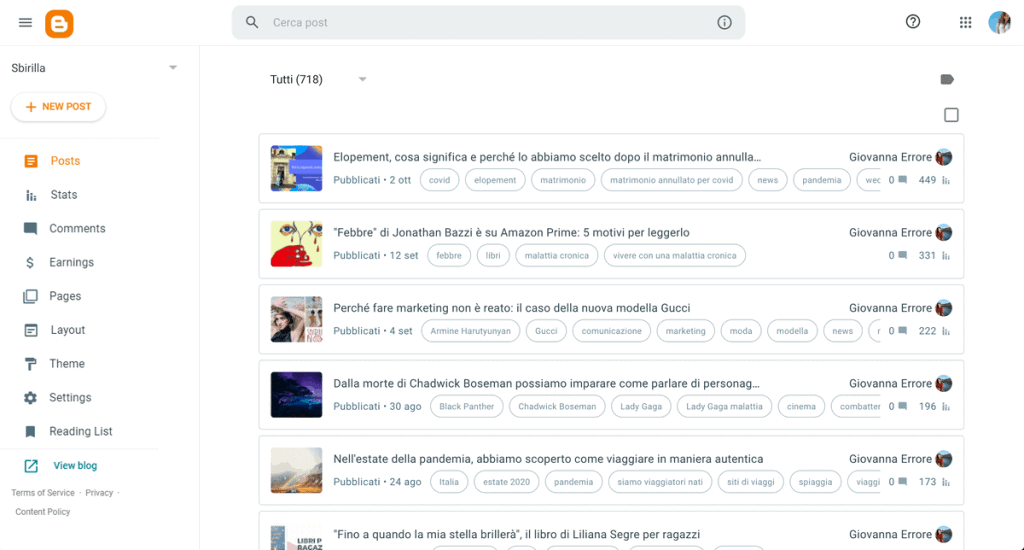
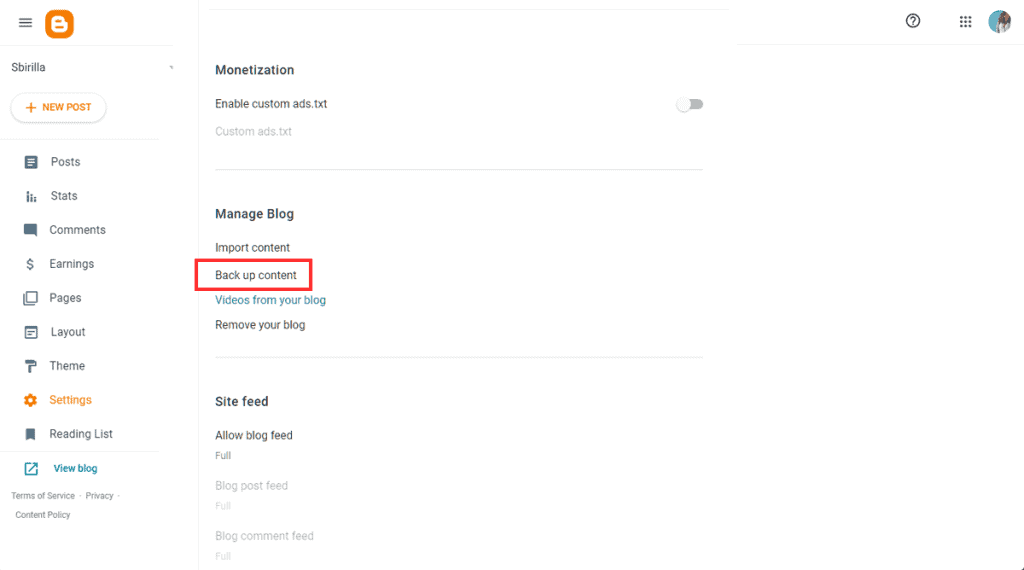
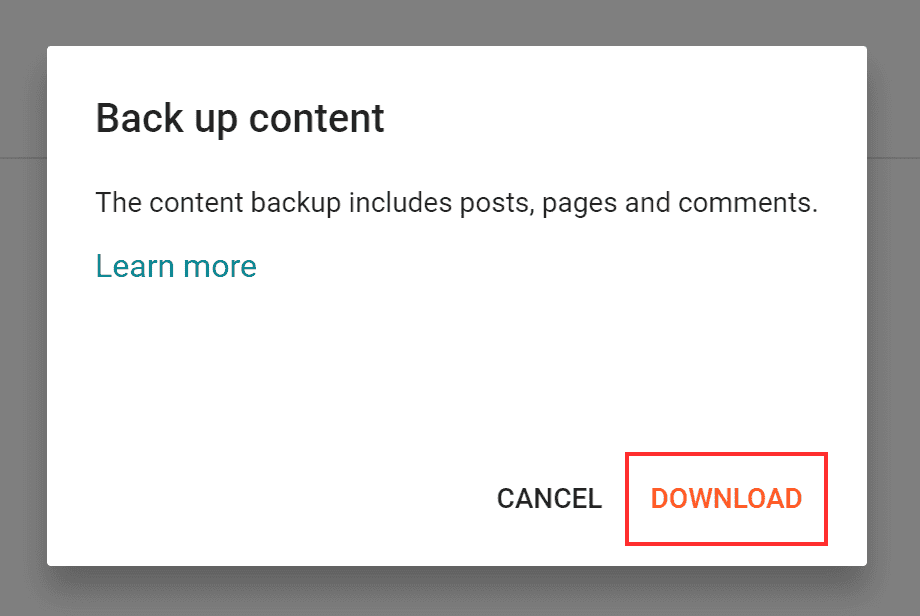
Importing content into WordPress
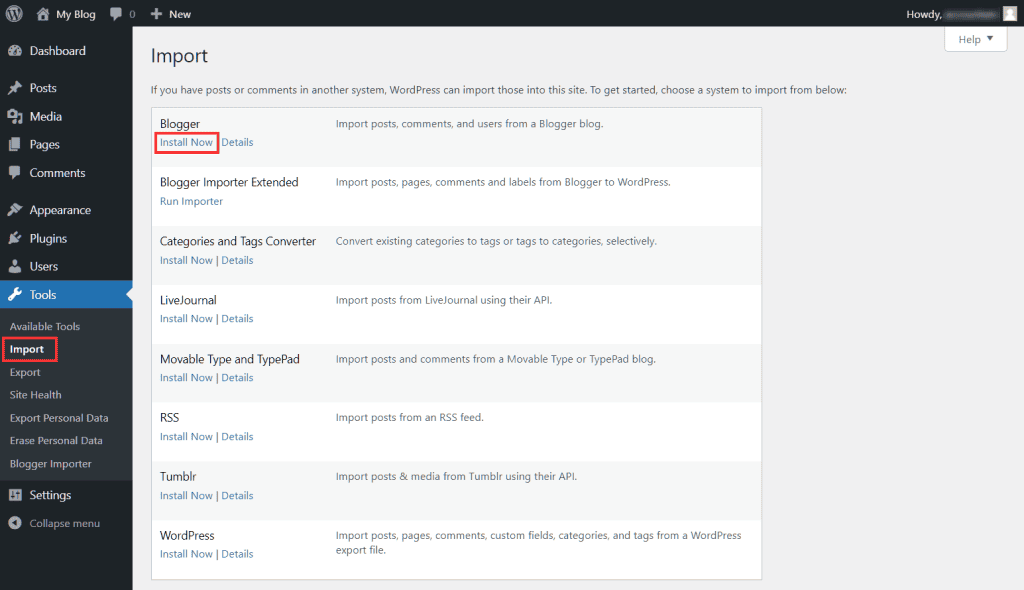
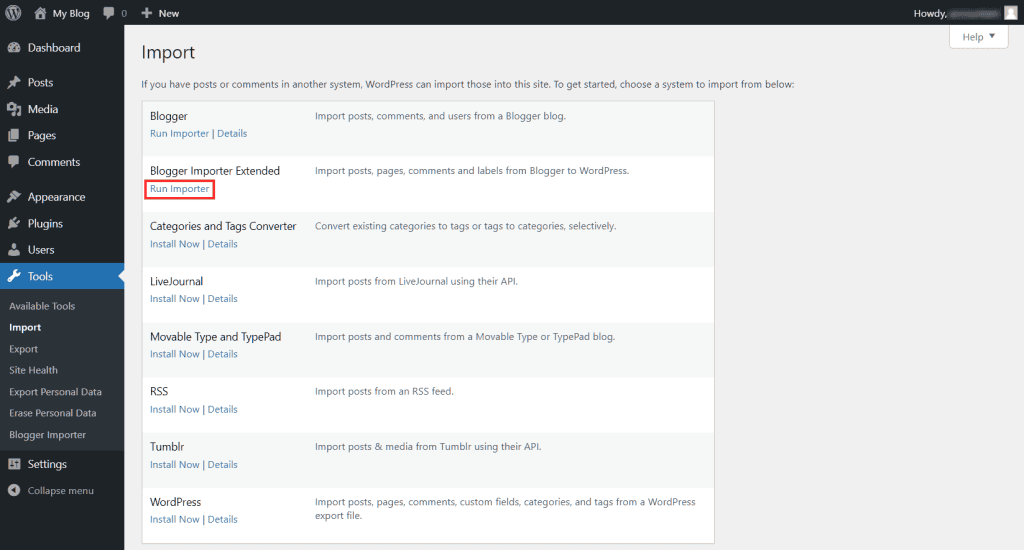
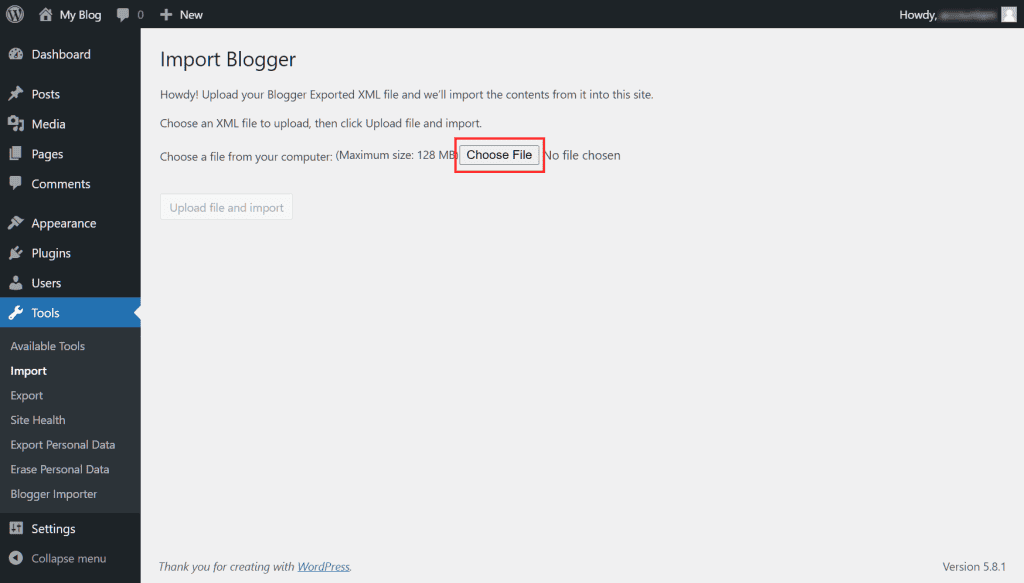
From Blogger to WordPress: an alternative method
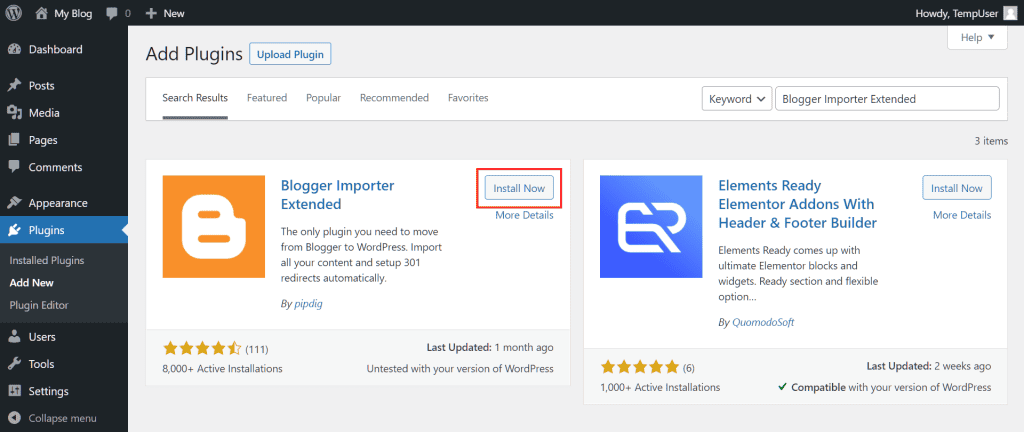
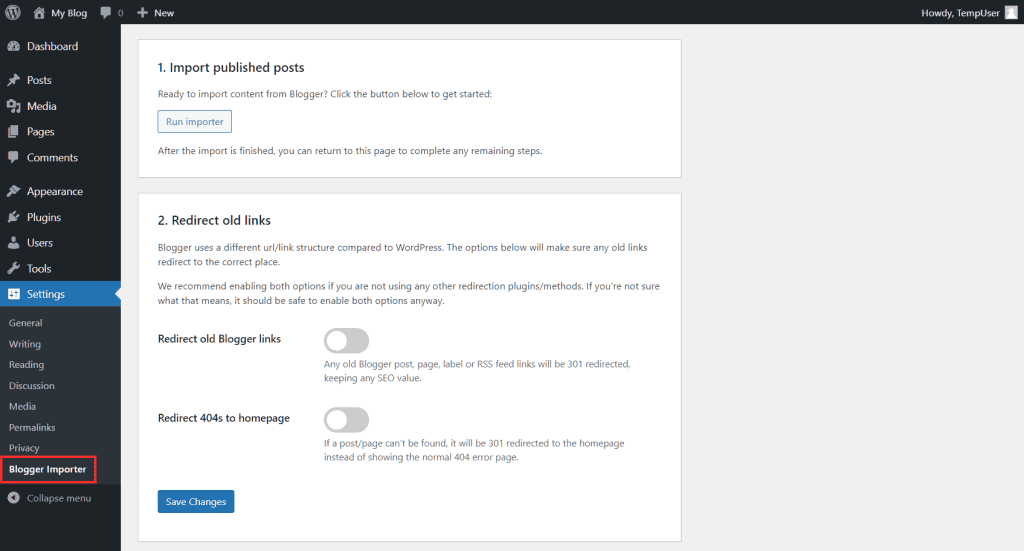
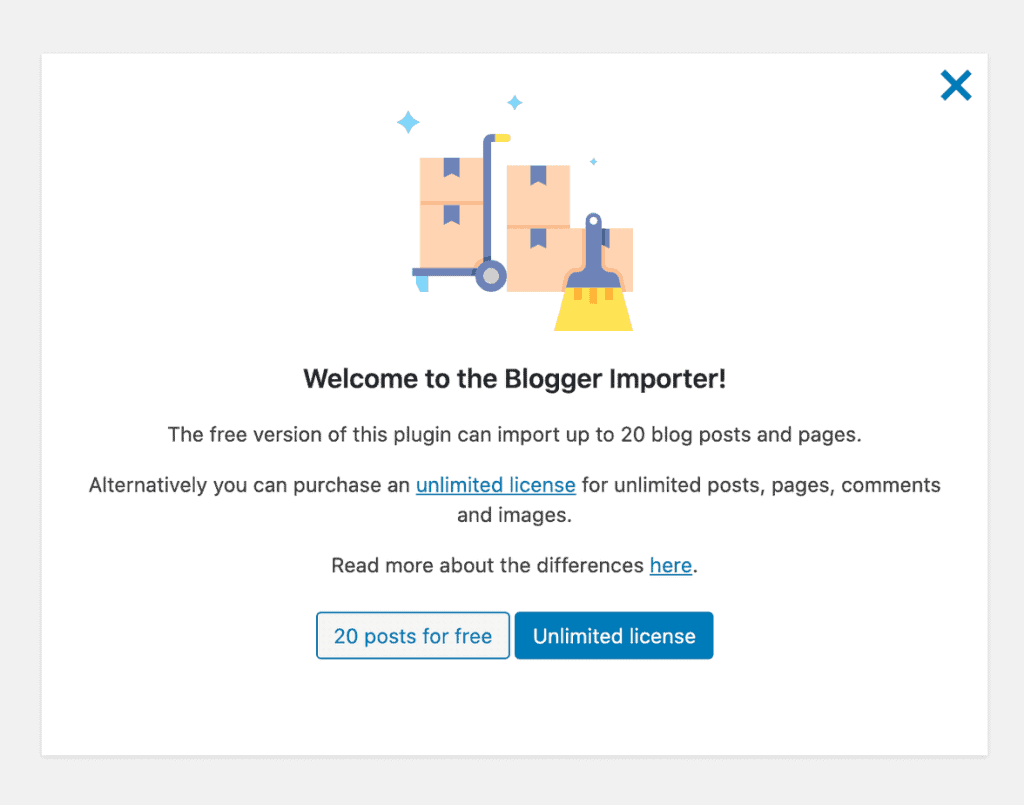
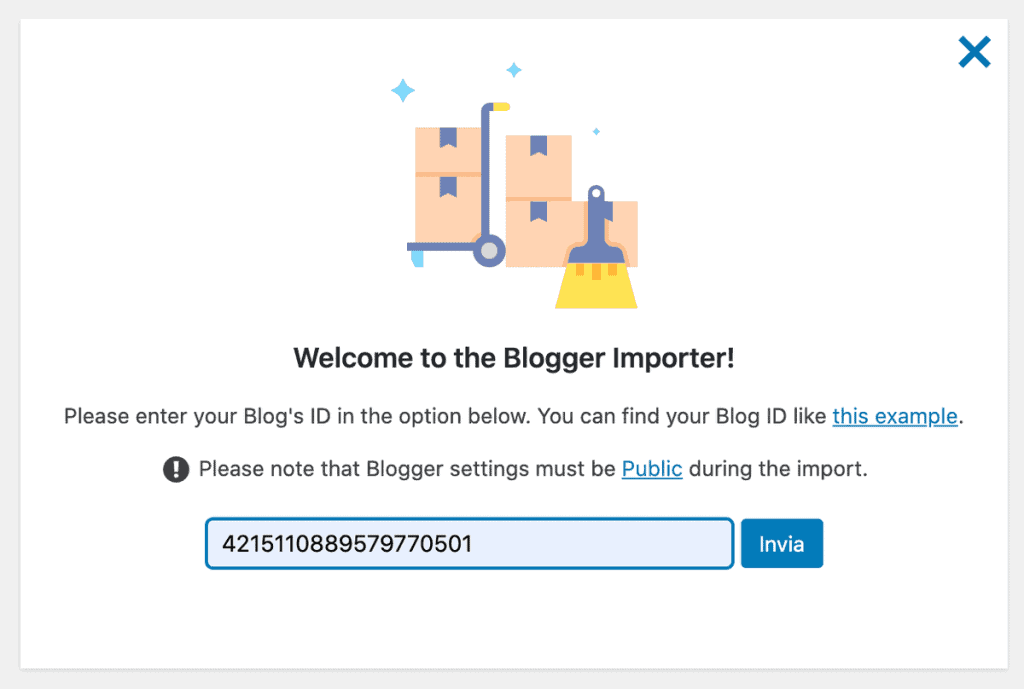
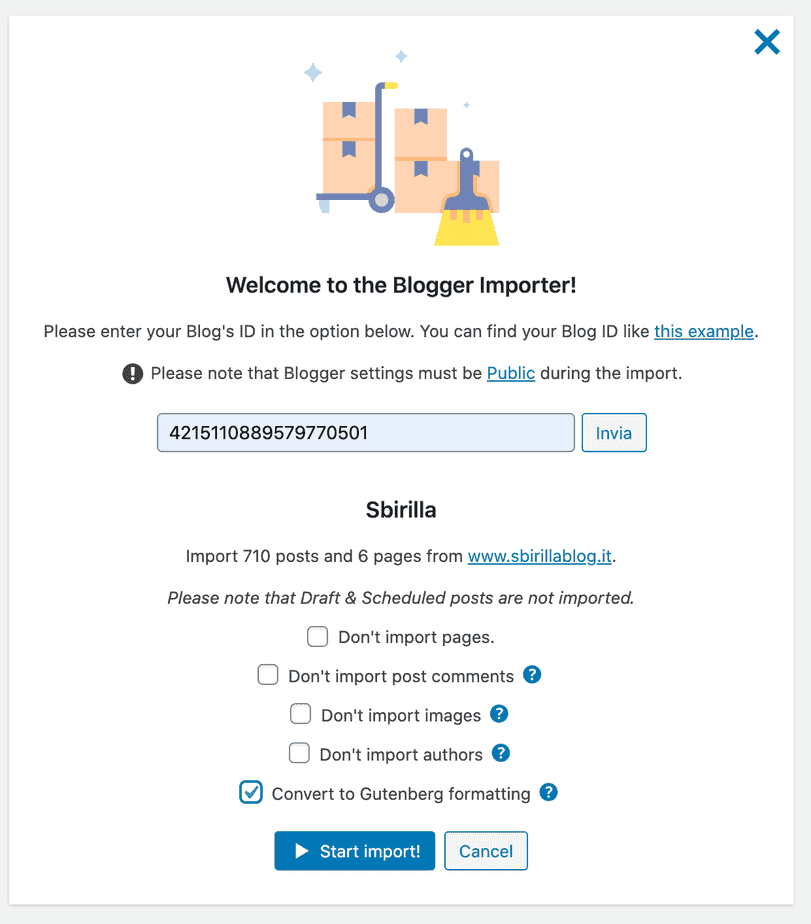
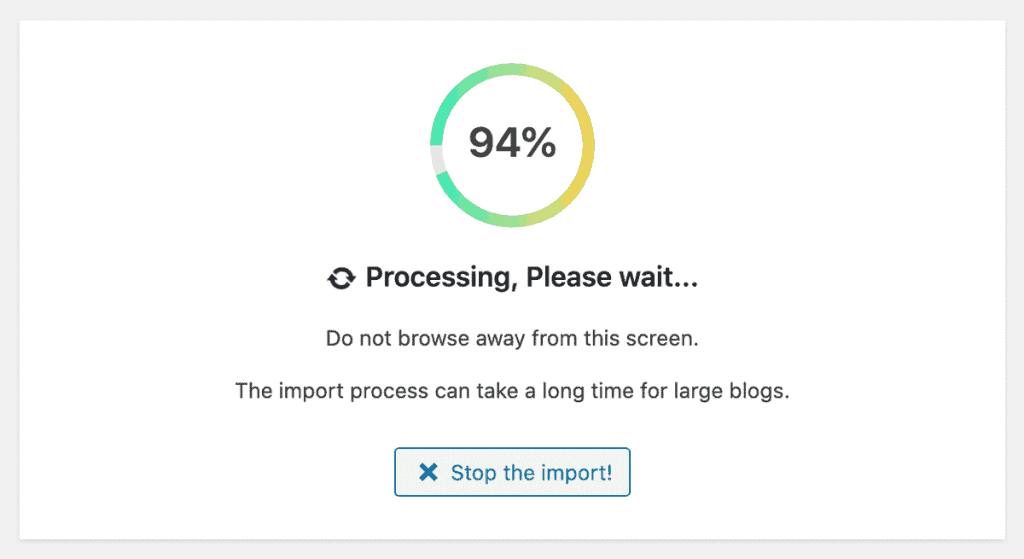
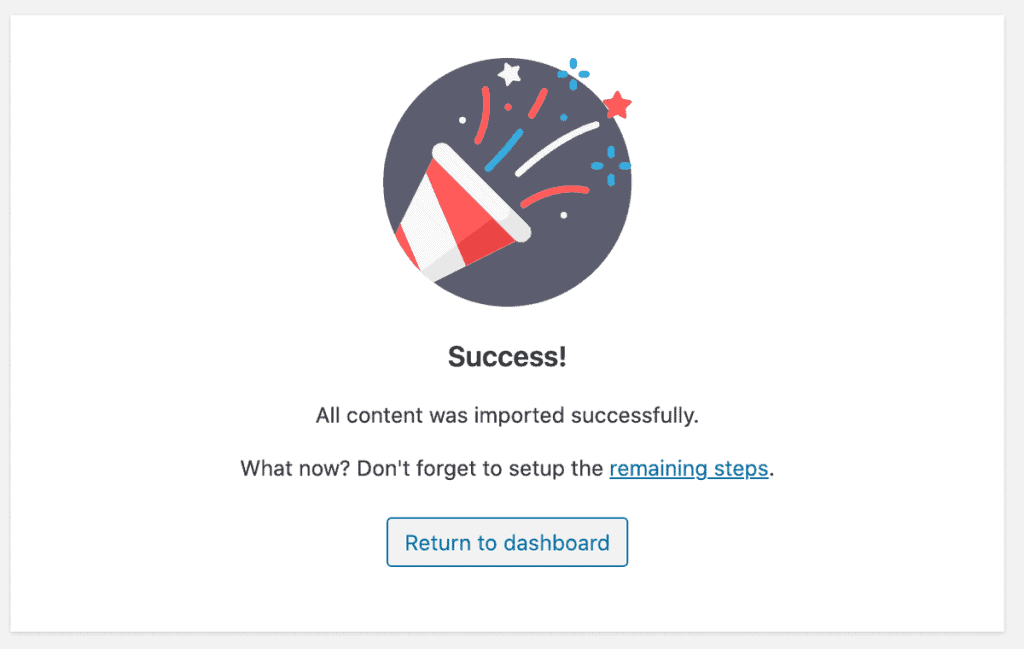
Check the result
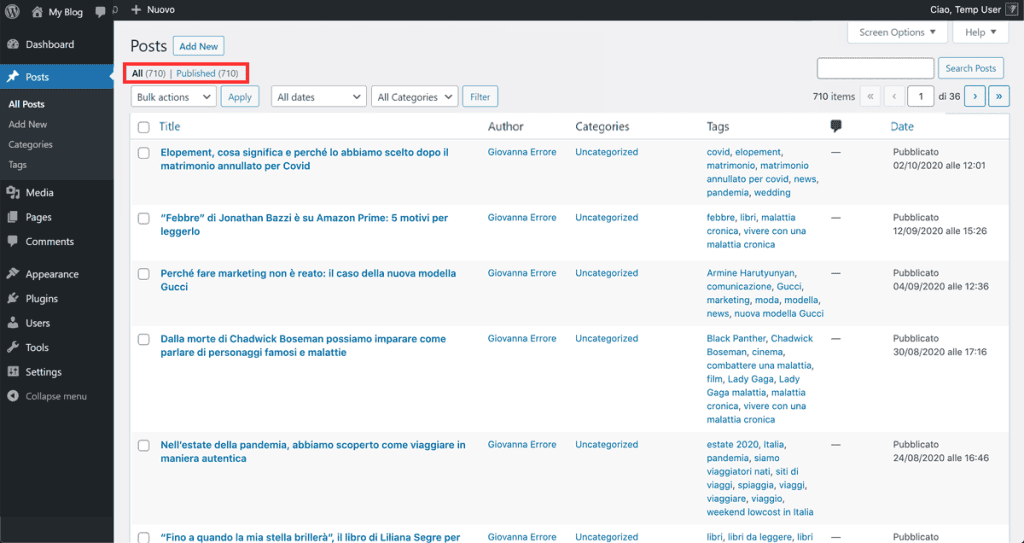
Redirect from old to the new site
<script type='text/javascript'> var post_regex = /^http:\/\/(www.)?..blogspot.com\/\d{4}\/\d{2}\//; var month_archive_regex = /http:\/\/(www.)?.*.blogspot.com\/\d{4}\d{2}\d{2}_archive.html/; var year_archive_regex = /updated-min=\d{4}/; var label_regex = /search\/label\/.+/; var old_root_domain = 'http://nome.blogspot.com', new_root_domain = 'https://www.nome.com', tag_url = '/tag/', redirect_suffix; if (post_regex.test(location.href)) redirect_suffix = (location.href.search(/www/i) == 7) ? location.href.substring(old_root_domain.length+4, location.href.length-5) : location.href.substring(old_root_domain.length, location.href.length-5); // -5 to strip .html else if (month_archive_regex.test(location.href)) { redirect_suffix = (location.href.search(/www/i) == 7) ? location.href.substring(old_root_domain.length+4, location.href.length-16) : location.href.substring(old_root_domain.length, location.href.length-16); // -16 to strip XX_archive.html redirect_suffix = redirect_suffix.replace(//g, '/'); } else if (year_archive_regex.test(location.href)) { redirect_suffix = year_archive_regex.exec(location.href).toString(); redirect_suffix = redirect_suffix.replace(/updated-min=/, '/'); } else if (label_regex.test(location.href)) { redirect_suffix = label_regex.exec(location.href).toString(); redirect_suffix = tag_url + redirect_suffix.split('/')[2]; } else redirect_suffix = ''; document.write("<meta content='0;URL=" + new_root_domain + redirect_suffix + "' http-equiv='refresh'/>"); </script> Conclusion
How To Transfer Plugins From One Blog To Another
Source: https://supporthost.com/migrate-blogger-to-wordpress/
Posted by: marquardtaccur1984.blogspot.com

0 Response to "How To Transfer Plugins From One Blog To Another"
Post a Comment